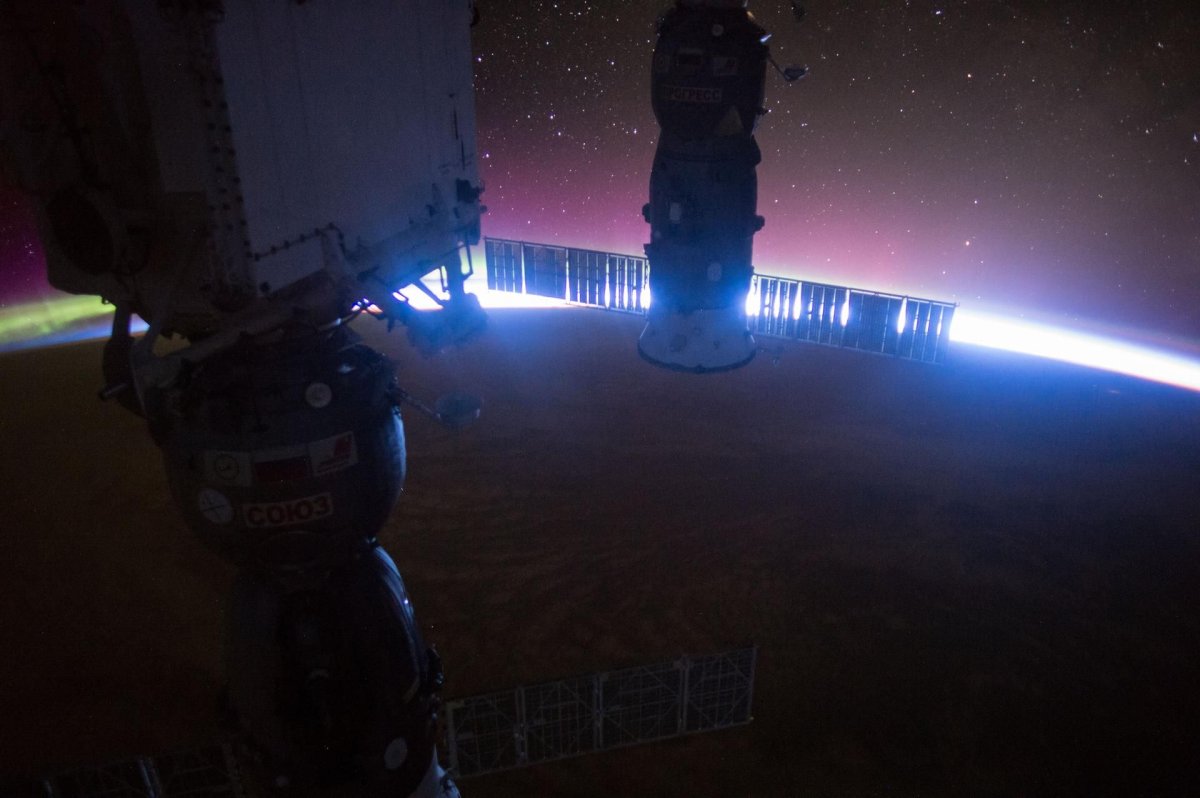Most people on Earth don't stay up during all of the hours between sunset and the following sunrise to see them both, but on the International Space Station (ISS) it's a bit easier for astronauts to manage.
A video, sped up from real time and filmed on the station, shows the sun set and then rise again as the station orbits Earth. What would usually take about an hour and a half is condensed down in the video to take just one minute.
On Monday, astronaut Ricky Arnold posted on Twitter the video showing the sun rise and set.
From Dusk until Dawn on @Space_Station. #MondayMotivation pic.twitter.com/pNiKQtrPft
— Ricky Arnold (@astro_ricky) September 24, 2018
The station orbits the Earth about every 90 minutes or so, meaning the astronauts on board can see as many as 16 sunrises and sunsets in a 24-hour period. The station can do this by traveling at about 15,500 miles per hour, according to NASA.
The same thing does not happen on the moon's surface. The astronauts who landed there didn't experience the change from day to night because the same side of the moon is always facing Earth and the moon itself doesn't rotate, though it does orbit the Earth. Astronauts on earlier missions, like the Apollo missions to orbit the Earth, did see night go to day and then back to night. If fact, anyone who orbits the Earth has experienced it, like Arnold and his fellow crewmates on board the ISS.
Arnold is a flight engineer on the station helping with the research on board the ISS. That research includes experiments on physics and biology in space to help researchers better understand the consequences of deep space travel or extended space travel. One key to making extended space travel possible is knowing the impact years spent in space can have on the human body.
The other crew members on board the ISS are Oleg Artemyev and Sergei Prokopyev of Roscosmos and Drew Feustel and Serena Auñón-Chancellor of NASA, along with Arnold.

Uncommon Knowledge
Newsweek is committed to challenging conventional wisdom and finding connections in the search for common ground.
Newsweek is committed to challenging conventional wisdom and finding connections in the search for common ground.
About the writer
Nina was a breaking news reporter. She previously worked at Business Insider, The Boston Globe, and Boston.com.
To read how Newsweek uses AI as a newsroom tool, Click here.








